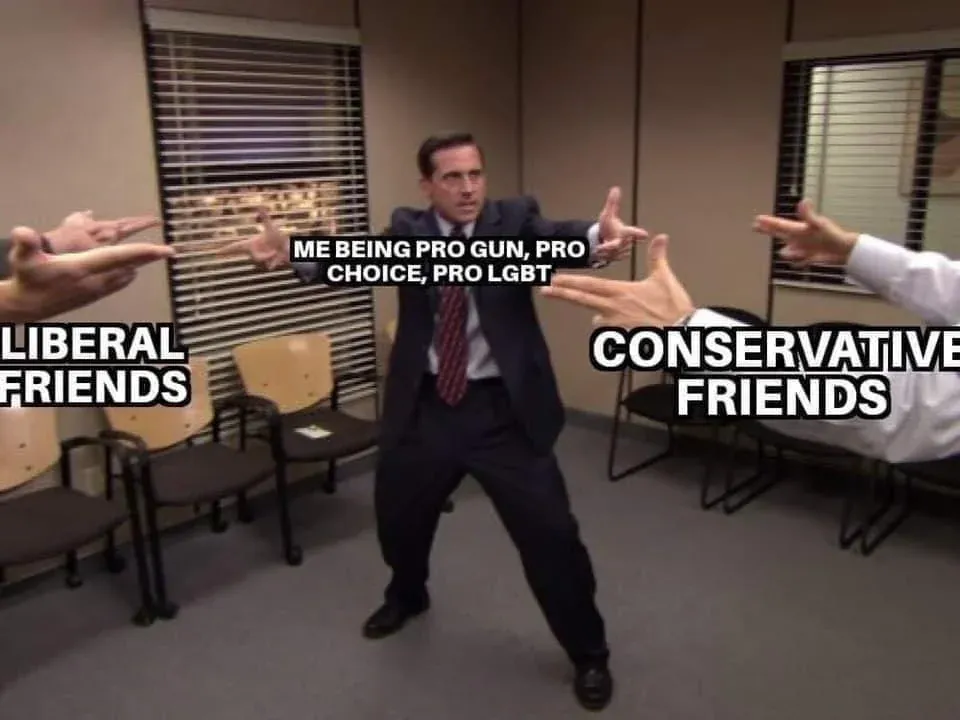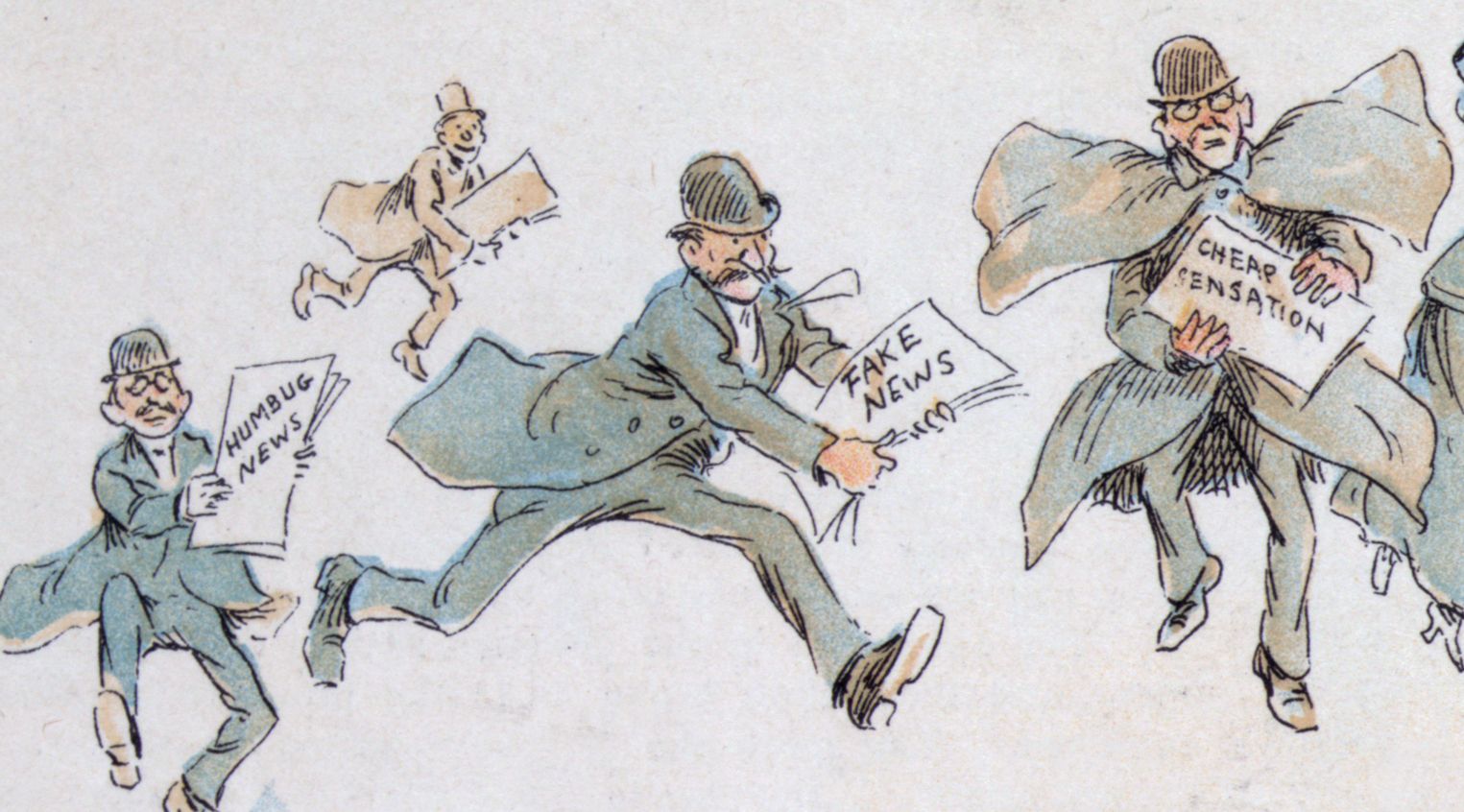I was recently reading a great news piece about AI-powered misinformation[1] and it reads like a modernized version of what Russia did in 2016 and 2020. It'd be terribly unfortunate if US expats working in UKR[2] happened to ball up J. M. Dougan,[3] and maybe hand him off to some folks in Stuttgart or to some OGA folks out of a State Department office somewhere with an obscure cover name, that wouldn't be the worst thing in the world. I'd actually like to see him stand trial in a Federal Court, not just disappear into a black site, though I doubt I'd cry about that either.
However bad the misinformation is though, it's easy to get away with because of two things:
- Our access to information is commoditized heavily, and our biases are turned into emotional fuel to increase social media revenue streams, and
- In a political landscape that is constantly skewed ever and ever away from centrists and farther towards extremism, the fact that we only nominate total idiots from each party doesn't help either.
For the latter, the simple truth in my opinion is, like always, South Park nailed it a long-ass time ago.

That episode aired twenty years ago in 2004. But maybe they weren't predicting 2024, but rather, they were just right 16 years ahead of their time when we had the same options at the 2020 election. Or were they 12 years ahead of their time when we had roughly these same options in 2016?
No, wait, it's been literally every election since I've been of legal voting age (which pre-dates this original episode in 2004 by a full election cycle). They weren't ahead of their time. They were mocking every election cycle we ever have, to includes ones before Trey and Matt had even left the University of Colorado.
We spend every single cycle justifying voting for the lesser of two evils as each candidate on both sides slides ever worse into the polarization extremes.[4] It's basically obvious for those that understand capitalism, marketing, and go-to-market strategies: markets exist for electoral bias, and early adopters are who define a market. Not merely in the US, but globally, centrist positions fail to incite early electoral market adoption.[5] In a nation of primary elections prior to general elections, early adopters are party extremists, who are those that get to set conditions for early race bias. It doesn't mean the most extremist candidate will win; that is rarely the case (at least amongst US Democrats lately), but it does mean that extremist views must be adopted. Joe Biden was against gay marriage as recently as 2006,[6] while he was serving as a US Senator, shortly before becoming the Vice Presidential candidate. His softening on the stance may be genuine, but it is nothing if not pragmatic.
To a lesser extent, the GOP adopts a similar strategy, except they actually do pick fringe lunatics at the extremes, who adopt demagoguery and completely change their politics[7] to fit what voters will accept in order to feed their ego.[8]
Personally? I pine for a new H. Ross Perot.[9] A genuine centrist with the nation's interest at heart instead of a political lifer hack that only pines for party politics. I'd argue that a pro-choice, pro-gun, anti-censorship, pro-business, low corporate tax + high personal income tax, moderately pro-environment, anti-war, pro-defense, pro-veteran, pro-NATO, pro-free trade with the west, anti-debt spending, pro-privacy candidate would win in an epic "Reagan 1984" level landslide against the options the GOP and DNC have given us.

If someone like that existed now, they'd win in a landslide by appealing to the "Silent Majority,"[10] the largest demographic determining win rates.
Yet the only way to win when polarized for primary victory is to paint your opponent in the nastiest shades and appeal as the lesser of two evils. This is supremely easy in 2024 as both main candidates are absolutely trash on almost every level, making the smear easy to spread.
It also means filling in the cracks with false news is even easier when it's so easy to believe a lie or follow a slant.
So how do we do it? Why is this different?
The US Army's Special Forces (SF) and the Central Intelligence Agency (CIA) both do the lion's share of work for how the US does regime change because of how government's we don't like operate. We don't do regime change (anymore) against democracies (and when we did, the long-term effects were disastrous),[11] so our organizations for effecting regime change are oriented around what works primarily against totalitarian communists like those in Venezuela, North Korea, and China, or just corrupt totalitarians who despise human rights like those in Iran, Russia or Afghanistan. The CIA thrives on creating internal dissent and developing nascent networks of people like Kurt Muse in Panama in 1989, and foment the types of attitudes and networks required at the geo-strategic level to facilitate broad dissent. Army SF takes a more tactical role; in friendly states, they train local militaries in foreign internal defense (FID) tactics, such as those in Ukraine since 2014.[12] In non-friendly nations, they train internal guerillas to actually be the "teeth" in a violent uprising.
Foreign actors trying to undermine the US do it all sorts of different ways; fundamentally, what works with how we overthrow tyrants doesn't work with how you'd overthrow America.
With China, the effort is focused on minimizing US impact to Chinese market growth in terms of world trade and control of world trade. While this is a fundamental threat, it's competitive and looks more like China's investment into Mexican factories for electric vehicle manufacturing[13] to drive down market costs. While some like Christine McDaniel of the Mercatus Center of George Mason University stated:
"It would be cheaper just to let the Chinese cars come in, forget all the tariffs and subsidies, let the market figure it out"
That assumes a fair market between the US and China, and given Chinese subsidization of entire markets using monetary manipulation and a highly fluid fiat currency control by the Chinese Communist Party (CCP), that doesn't really reflect reality. Still, it's macro-economic competition that drives the narrative (other than the risk over a war over Taiwan).
But with Russia, the tactics are much more real. Electing Trump isn't about control; Russia doesn't control Trump. Nothing but Trump's ego controls Trump. However, Trump's entry into US politics has drug American stature through the wringer, even with his loss and election of Joe Biden. All of these things have played into Russia's ability to project power unchecked relative to, say, 1980 through 2008. Trump's election was not only good for Russia, it was disastrous to the Republican party. Reagan would be appalled by both Trump and Biden.[14]
How Russia manipulates the US isn't with Spetsnaz training a militia in Montana or Michigan, nor with the GRU actively developing complicit networks. Rather, the GRU (with units like 26165 and 74455) actively manipulating the American public.[15]
This is actually utilizing our own social networking algorithms the way they are literally designed. It's not a "hack" - the organizations like those GRU units or the departed Prigozhin's former Internet Research Agency (IRA) troll army, nor J. M. Dougan aren't literally hacking things or making things work in any way other than intended. The "ideal feed" from a social media organization is designed around increasing engagement time and thereby increasing ad impressions and driving revenue.[16] Unfortunately, the algorithms don't care about mental health in this process but rather thrive off of manipulating it in bad ways; this increases engagement and therefore, revenue.[17] This also means trolls like the IRA nor J. M. Dougan are really doing anything beyond that which the algorithms aren't just designed to do, but hyper-optimized to do.[18]
Don't fall for it like the ridiculous fool Marjorie Taylor Greene.[19] Be smarter than that (that's a pretty low bar).
The enemy is actively manipulating the US public. Fight back by being intelligent instead of just repeating that which is convenient because it smears your opponent or helps sell your own beliefs.
I'd actually be surprised to have commentary against this post be based in genuine praise for any given candidate and policy, and not be derived from emotional reactions to the "threat" of the opposition candidate/party/platform or stance, whether even real or imagined. The idea of contrarian politics is so base into our thoughts now.
Header image courtesy of Frederick Burr Opper, 1894.
4 Pew Research Center. 2014. Political Polarization in the American Public. June 12.
5 Bacon, Perry, Jr. 2024. Centrist politics are failing in the U.S. and Europe. June 27.
7 Moody, Chris. 2015. Trump in ‘04: ‘I probably identify more as Democrat’. July 22.
9 Ramsey, Ross. 2019. Analysis: The extraordinary adventures of H. Ross Perot. July 10.
12 Fiala, Otto. 2022. Resilience and Resistance in Ukraine. December 31.
14 Lehman, John. 2024. Reagan Would Never Vote for Trump. March 17.
16 Kim, Sang Ah. 2017. Social Media Algorithms: Why You See What You See. December.
